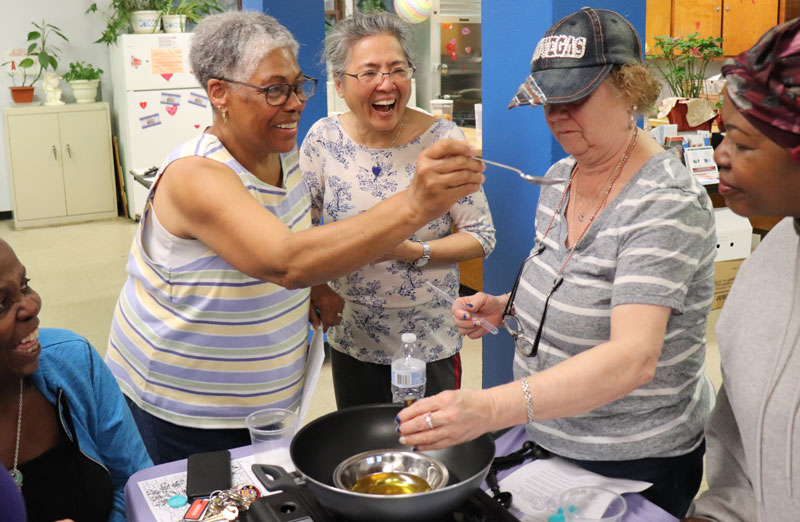
The COVID-19 crisis has upended life in the city in unprecedented ways, but decades of Trust grantmaking have helped strengthen the city’s safety net. The grants described below, submitted in the months prior to the crisis, show how targeted support can help New York face this unexpected catastrophe.
Improving Nursing Home Conditions
Although the New York State Department of Health inspects nursing homes, its reports often do not reliably find all the dangerous conditions that need to be mitigated. In fact, federal inspectors do a small number of checks and often find as many as twice the number of infractions.
For that reason, The Trust gave the Long Term Care Community Coalition $75,000 to show the state how to improve its inspection system. The advocacy organization will review federal regulations and state and regional practices. Then it will present its findings to government officials and reach out to advocates and families with loved ones in nursing homes so they can report dangerous situations.
New York State has the largest number of elders in nursing homes in the country. Improving our system can have an outsized impact across the nation. – Rachel Pardoe, Trust program officer
Protecting the Health of Prisoners
In 1846, the New York State Legislature had the foresight to create an independent nonprofit organization, the Correctional Association of New York, to inspect prisons and make recommendations for improving conditions. With a $200,000 grant from The Trust, the Association will investigate one of the most-cited complaints from inmates about prisons: the health care system.
Because prison health care personnel are not overseen by the Department of Health, the Association is the sole body that can provide independent evaluations, but it has not had sufficient resources. Over the next two years, the Association will evaluate prisoners’ well-being and care, as well as file Freedom of Information requests to get important data that has been withheld by the state.
In addition, the Association will work with the governor and legislature to draft a bill that would provide access to information it needs to monitor the prison health system. The Association will work with the Prisoners Legal Services, which also received a $200,000 grant to assist those being released and returning to the community.
Increasing Access to Mental Health Care
About three-quarters of working New Yorkers rely on employer-sponsored health insurance, and they are often faced with a tough challenge if they need mental health or substance abuse care. Although the law says there should be parity with physical health care, the reality is that there are not many in-network behavioral health providers, and the out-of-network providers have co-pays that can be 11 times higher than those for physical health.
The Northeast Business Group on Health includes corporations, unions, and health systems, which collectively cover 4.5 million New Yorkers. With $150,000 from The Trust, the coalition will work with a national effort, called Path Forward, to leverage their members’ purchasing power to improve the behavioral health system for people with employer-sponsored insurance.
The coalition will gather data on New York, develop a strategic plan, and provide information to help members negotiate for better coverage.
For the past ten years, Good Shepherd Services has used “trauma-informed practice” to help clients process the effects of trauma. The practice helps people manage emotions, build healthy relationships, and reverse the negative psychological effects of trauma.
With a $150,000 grant, Good Shepherd will expand its use of this practice by starting a training program for its social work staff who deal with children and families at high risk of experiencing trauma.
Other ways we’re aiding New Yorkers

Queens Community House is using $80,000 to deepen the role of its community center in the Pomonok public housing development so it can better address the employment, education, elder care, food access, benefits, and health care needs of entire households.
Association of Community Employment Programs for the Homeless (ACE) is using $100,000 to expand a program to help people improve professional skills and build social support systems to stay employed and advance their careers.
Opportunity America Educational Fund is using $100,000 to research and make recommendations to improve workforce education and development at the City University of New York’s seven community colleges.
New York City Homeless Youth and Families Fund, a new funder collaborative in The Trust, is using $250,000 to advance long-term solutions that prevent homelessness, upgrade existing shelters and improve the services they provide, and expand the amount of permanent affordable housing with support services.